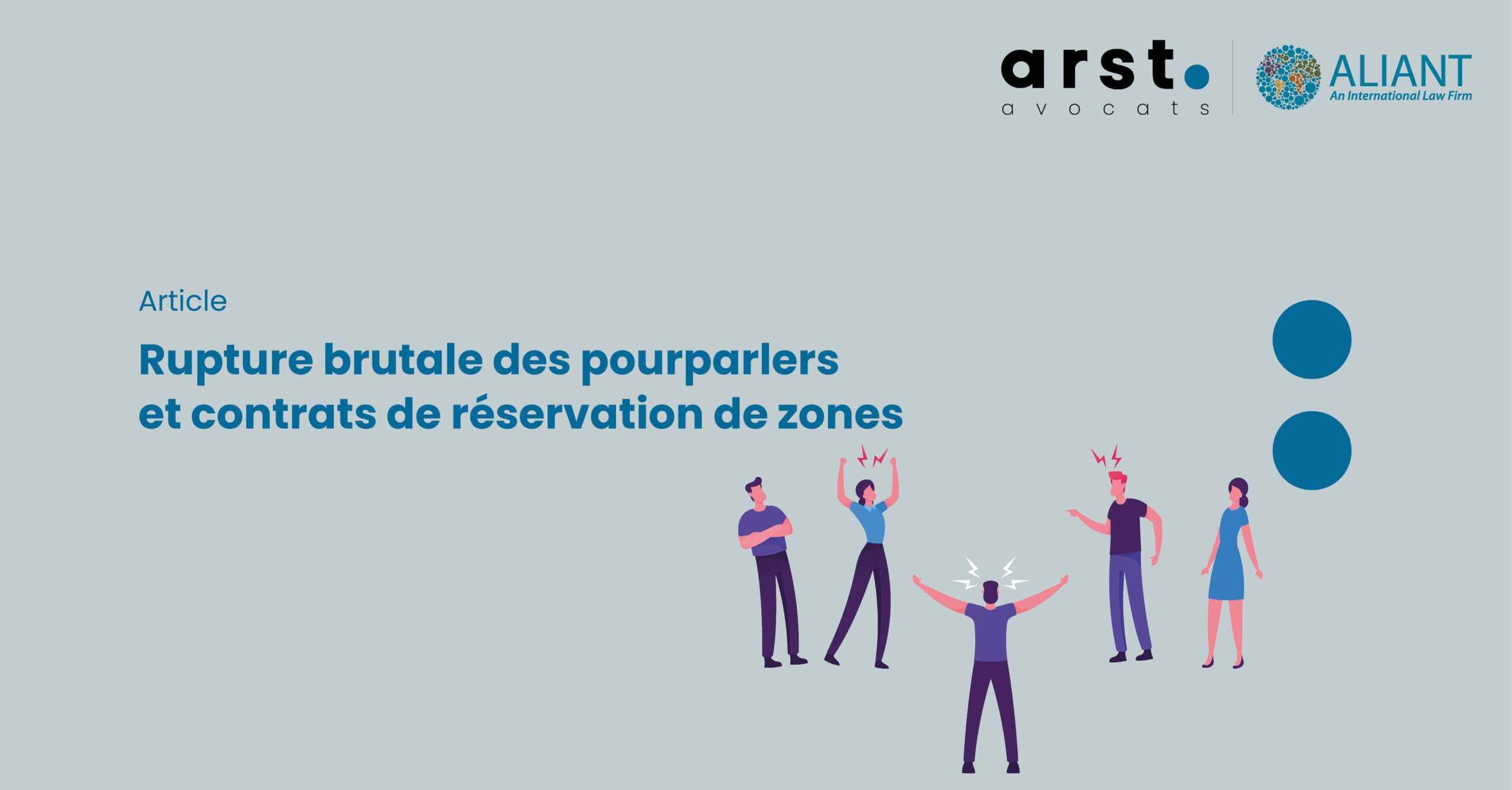
The abrupt breakdown of the talks was not due to a loss of confidence in the candidate franchisee, but rather the latter's refusal to change the location of the reserved area.
Court of Appeal of Nîmes, 4th commercial chamber, December 1, 2021, n°19/04575
In a judgment of December 1, 2021, the Nîmes Court of Appeal confirms the conviction of a franchisor on the basis of the sudden breakdown of the talks, in the context of area reservation contracts not followed by the conclusion of a contract of franchise.
In this case, a franchisor had entered into two successive reservation contracts with a candidate, each lasting six months.
At the end of these contracts, an area covering several municipalities around the city of Nîmes had been reserved for the benefit of the candidate.
During the pre-contractual period, i.e. for more than one (1) year, the following took place in particular:
- signing a pre-contractual information document (DIP) ;
- the completion of structural work for the establishment of a point of sale, on the basis of plans validated by the franchisor and modified at the latter's request;
- the communication to the candidate of the franchise contract intended to be signed and of a date of signature for May 2018, the opening of the store being planned for the month of August.
However, this franchise contract was never to be concluded, the franchisor having received from one of its franchisees a plan to set up a point of sale in one of the areas reserved by the candidate.
After having proposed, in vain, to the latter to move part of this area in order to allow its franchisee to open a second point of sale, the franchisor notified the candidate of the "impossibility" of opening the point of sale discount.
After a formal notice remained unsuccessful, the candidate engaged the responsibility of the franchisor, for violation of the commitments made in the zone reservation contracts, as well as in the franchise contract and its unregulated addendum.
The Commercial Court of Nîmes having partially accepted these requests, the candidate and the civil society formed for the purpose of operating the point of sale, appealed against the judgment rendered on December 4, 2019.
The franchisor argued for his part that the failure to sign the franchise contract was linked to the behavior of the candidate, with whom he had encountered difficulties in the context of negotiations, and which had led to a "loss of confidence" justifying the failure to sign the franchise agreement.
He also recalled that he was not forced to sign the franchise contract, relying in particular on a clause in the reservation contracts authorizing him not to follow up on the request for integration into the franchise network. , subject to the restitution of the sum paid by the reservee.
These arguments are not followed by the Court of Appeal of Nîmes which, in its judgment of December 1, considers that the franchisor's company showed particular bad faith by putting an end to the talks two months before the opening of the store, when she had sent the candidate the franchise contract and its appendix for signature, and even when she did not justify any legitimate reason and when this sudden rupture implicitly responded to the refusal opposed by the respondent to make a change of zone.
Thus, the Court holds that the sudden breakdown of the talks was not due to a loss of confidence in the candidate franchisee, but rather the latter's refusal to change the location of the reserved area.
This decision is interesting in more ways than one.
It turns out, in fact, that :
- The conclusion of a zone reservation contract binds the franchisor, the reserved zones cannot be called into question unilaterally.
- The unjustified refusal to conclude a franchise contract at the end of a zone reservation contract, at an advanced stage of the negotiations, can characterize an abusive break in the talks.
- The company formed by the candidate may be deemed eligible to request compensation for its damage.
- However, the compensation requested can only be granted for damages arising exclusively from the improper termination of the talks. Thus, the compensable damage does not include the loss of opportunity to contract with third parties, nor the investment and fitting out expenses of the premises (architect's costs, purchase of equipment, etc.), with regard to “general work useful to the operation of a store and not specific to the proposed franchise”.
There is no doubt that this decision should be kept in mind by franchisors and (future) franchisees, with regard to the contracts governing the period prior to the signing of franchise contracts.
Laurence Kouassi – Lawyer, Besser Donat – Trainee